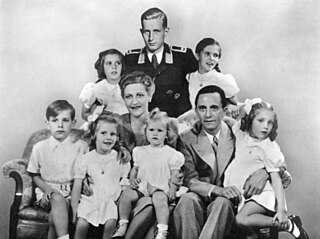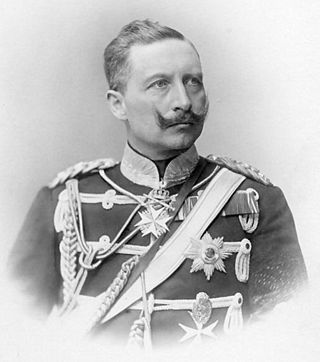Related Research Articles

Hildegard Frieda Albertine Knef was a German actress, singer, and writer. She was billed in some English-language films as Hildegard Neff or Hildegarde Neff.
Amon may refer to:
Gerda is a feminine given name. Notable people with the name include:
Helga is a female name, used mainly in Scandinavia, German-speaking countries and the Low Countries. The name was in use in England before the Norman Conquest, but appears to have died out afterwards. It was re-introduced to English-speaking nations in the 20th century from Germany, the Netherlands, and the Nordic countries. Scandinavian male equivalent is Helge, or Helgi. Eastern Slavic names Olga (Ольга) and Oleg (Олег) are derived from it.
Unsere Besten is a television series shown on German public television (ZDF) in November 2003, similar to the BBC series 100 Greatest Britons and that program's spin-offs.
Hilda is one of several female given names derived from the name Hild, formed from Old Norse hildr, meaning 'battle'. Hild, a Nordic-German Bellona, was a Valkyrie who conveyed fallen warriors to Valhalla. Warfare was often called Hild's Game. The name became rare in England during the later Middle Ages, but was revived in the 19th century. In Sweden it has been in use since the late 18th century, being a popular name throughout the 19th century. Hilde is a variant of Hilda. Another variation on Hild is Hildur.
Helmut is a German name. Variants include Hellmut, Helmuth, and Hellmuth.
Alois is an Old Occitan form of the name Louis. Modern variants include Aloïs (French), Aloys (German), Alois (Czech), Alojz, Alojzy (Polish), Aloísio, Alajos (Hungarian), and Aloyzas (Lithuanian).
Gertrude is a feminine given name which is derived from Germanic roots that meant "spear" and "strength". "Trudy", originally a diminutive of "Gertrude," has developed into a name in its own right.
Hilde is one of several female given names derived from the name Hild formed from Old Norse hildr, meaning "battle". Hild, a Nordic-German Bellona, was a Valkyrie who conveyed fallen warriors to Valhalla. Warfare was often called Hild's Game. Hilde was popular in Norway from the 1950s until the 1970s. It is a variant of Hilda, which in turn is a more recent variation of Hildur.

The Goebbels children were the five daughters and one son born to Nazi propaganda minister Joseph Goebbels and his wife Magda. The children, born between 1932-1940, were murdered by their parents in Berlin on 1 May 1945, the day both parents committed suicide.
Hildegard Zaloscer (Zaloszer) was an art historian, Egyptologist, Coptologist, essayist, novelist and a prominent expert of Coptic history and art.
Events in the year 1945 in Germany.

Wilhelm is a German given name, and a cognate of the English name William. The feminine form is Wilhelmine.
Hildur is one of several female given names derived from the name Hild formed from Old Norse hildr, meaning "battle". Hild, a Nordic-German Bellona, was a Valkyrie who conveyed fallen warriors to Valhalla. Warfare was often called Hild's Game. Hildur is rather exclusively used in Nordic counties, but the more recent variations with the same origin, Hilda and Hilde, are in wider use. The Swedish name day for Hildur and Hilda is 18 January.
Jäger is a common German surname. It comes from the German word for "hunter". Related surnames in other languages include De Jager, Jääger, Jágr, Yaeger and Yeager.
Karl is a Germanic masculine name meaning "free man". The name originates in Old Norse. It is a variant of the English Charles, and the Latin Carolus.

Feuerhalle Simmering is a crematorium with attached urn burial ground in the Simmering district of Vienna, Austria. It lies at the end of an alley, directly opposite Vienna Central Cemetery's main gate.

Doris is a predominantly feminine given name of Greek origin meaning Dorian woman. The name of the ethnic group is said to be derived from the name of the mythical founder Dorus, taken from Greek dōron, meaning gift. Doris was a sea goddess, wife of Nereus and mother of the Nereids in Greek mythology.
References
- ↑ Mike Campbell. "Behind the Name: Meaning, origin and history of the name Hildegard". Behind the Name.
- ↑ Patrick Hanks; Kate Hardcastle; Flavia Hodges (2006). A Dictionary of First Names. Oxford University Press. pp. 224–. ISBN 978-0-19-861060-1.
Hildegard From an old Germanic female personal name composed of hild 'battle' + gard 'enclosure'.
- ↑ Toñi F. Castellón (1990). El significado de los nombres (in Spanish). Editorial Sirio, S.A. pp. 137–. ISBN 978-84-7808-311-4.